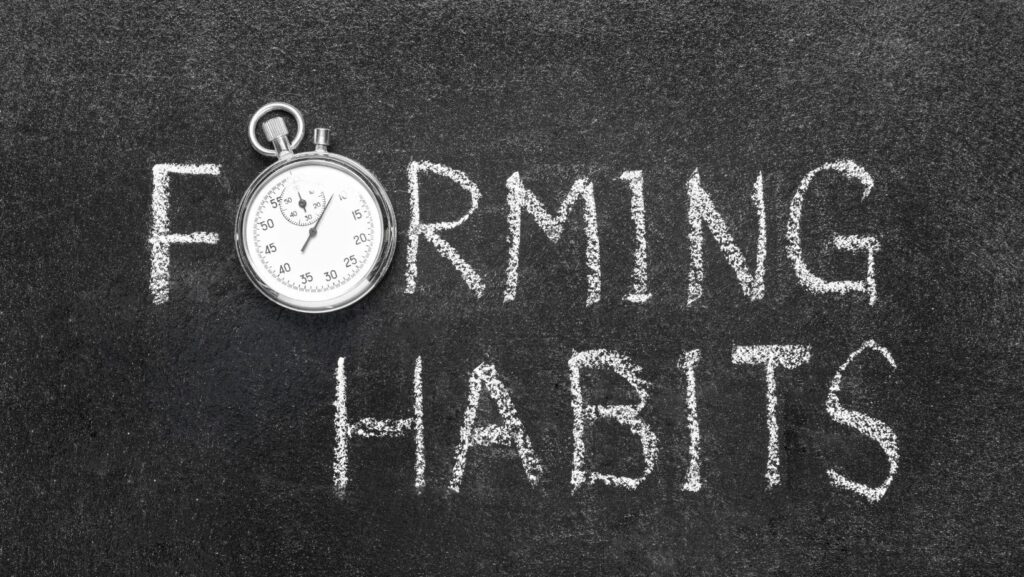In a world filled with distractions and endless choices, understanding how to form lasting habits has never been more essential. A solid habit formation framework can empower individuals to create positive changes in their lives, whether it’s adopting healthier routines or boosting productivity. By breaking down the process into manageable steps, anyone can harness the power of habits to achieve their goals.
This article delves into the key components of effective habit formation, offering insights into how habits are created, maintained, and transformed. With a clear framework in hand, readers will discover practical strategies to cultivate habits that stick, paving the way for a more fulfilling and successful life.
Habit Formation Framework
A habit formation framework consists of several key components that contribute to developing and maintaining effective habits. Understanding these components allows individuals to create positive changes in their lives.
Cue
Cues act as triggers that initiate a habit. Identifying specific cues helps individuals recognize what prompts their behaviors. Common examples of cues include time of day, location, and emotional states. By consciously selecting cues, individuals can influence their habits effectively.
Routine
Routine refers to the actual behavior or action taken in response to the cue. It encompasses the steps involved in forming a habit. Clear and defined routines simplify the habit process, making it easier for individuals to follow through consistently.
Reward
Rewards reinforce behaviors, creating a positive association with the habit. Effective rewards can be intrinsic or extrinsic. Intrinsic rewards include feelings of satisfaction, while extrinsic rewards may involve tangible benefits. Identifying appropriate rewards enhances motivation and encourages habit persistence.
Belief
Belief plays a critical role in habit formation. Individuals must believe in their ability to change behaviors and establish new habits. Cultivating a positive mindset supports the development of effective habits, making it crucial to address self-doubt and negative thoughts.
Environment
Environment significantly affects habit formation. A conducive environment facilitates habit execution, while a distracting environment hinders it. Structuring the environment to support desired habits includes minimizing distractions and integrating supportive tools that enhance focus and productivity.
Tracking Progress
Tracking progress helps individuals monitor their habits and celebrate milestones. Regularly assessing improvements provides valuable feedback, reinforcing the desire to maintain and enhance habits. Using apps, journals, or charts aids in visualization, motivating continued efforts.
By understanding and implementing these key components, individuals enhance their likelihood of creating lasting habits that contribute positively to their lives.
Key Components Of Habit Formation
Understanding the key components of habit formation enables individuals to effectively create and sustain positive habits. These components—cues, routines, and rewards—are interlinked and essential for lasting change.
Cue
Cues serve as triggers that initiate the habit loop. They can be internal or external signals that prompt specific behaviors. For example, time of day, emotional states, or environmental contexts often act as cues. A consistent cue enhances the likelihood of executing the desired routine, making it easier for the brain to recognize and respond to the signal. Utilizing clear, specific cues helps individuals establish and strengthen their habits.
Routine
Routines consist of the specific behaviors performed in response to cues. These actions can be physical, mental, or emotional and characterize the habit itself. For instance, exercising after work or reading before bedtime represents common routines. Establishing routines requires consistency; repeating the same behavior following the cue reinforces the connection. Clear, actionable routines make habit formation straightforward and effectively integrate into daily life.
Reward
Rewards play a critical role in reinforcing behaviors associated with routines. They provide positive feedback and increase the likelihood of repeating the behavior in the future. Rewards can be intrinsic, such as a sense of accomplishment or satisfaction, or extrinsic, such as treating oneself after completing a task. Identifying meaningful rewards that resonate with personal values enhances motivation and encourages adherence to the routine, ensuring that habits become ingrained over time.
The Science Behind Habit Formation
Understanding the science behind habit formation reveals how the brain processes and retains new behaviors. This comprehension can guide individuals in establishing lasting routines.
Neuroplasticity
Neuroplasticity describes the brain’s ability to reorganize itself by forming new neural connections. Each time a habit is formed, the brain creates pathways that facilitate repeated behavior. For instance, research shows that consistent practice of a new habit strengthens these pathways, making the behavior more automatic over time. This process occurs through synaptic plasticity, where frequent use of a pathway enhances its efficiency. Thus, the more often an individual engages in a behavior, the easier it becomes, illustrating the significance of repetition in solidifying habits.
Behavioral Psychology
Behavioral psychology examines how actions are influenced by environmental factors and reinforcement. Concepts like operant conditioning highlight that rewards and consequences shape behavior. Positive reinforcement, such as receiving praise or feeling accomplished, increases the likelihood of repeating a desired behavior. Research indicates that combining rewards with cues effectively builds strong habit loops. Additionally, understanding triggers—both internal and external—enables individuals to create supportive environments that foster positive routines. By applying principles from behavioral psychology, individuals can construct frameworks that not only initiate habits but also enhance their longevity and effectiveness.
Practical Applications Of Habit Formation Framework
Habit formation frameworks can significantly improve individual growth and drive organizational success. Utilizing these frameworks leads to sustainable change and enhanced productivity.
Personal Development
Habit formation frameworks play a vital role in personal development. Individuals can establish effective routines by identifying cues that trigger desired behaviors. For instance, someone aiming to exercise regularly might set up a morning alarm as a cue. Choosing consistent and enjoyable routines reinforces these behaviors. Incorporating rewards, such as treating oneself to a favorite snack post-workout, solidifies motivation. Belief in personal capability strengthens commitment to change, while a supportive environment boosts consistency. Regularly tracking progress allows individuals to celebrate small victories, fostering a sense of achievement that further enhances motivation.
Organizational Change
In organizational settings, habit formation frameworks drive impactful change. Cultivating a culture that embraces new habits starts with clear cues, such as company-wide emails announcing new initiatives. Implementing structured routines, like daily team check-ins, helps reinforce desired behaviors. Providing incentives, such as recognition or bonuses for meeting performance metrics, creates an external motivation for employees. Leadership’s belief in the organization’s vision is crucial; when leaders model the desired behaviors, it encourages staff buy-in. Additionally, creating an environment conducive to change, such as open workspaces promoting collaboration, can facilitate new habit adoption. Regularly assessing progress through feedback and performance reviews helps organizations adapt and refine their strategies.
Achieving Lasting Change
Mastering the art of habit formation is essential for achieving lasting change. By understanding the framework that underpins effective habits, individuals can navigate distractions and build routines that lead to healthier lifestyles and increased productivity.
Recognizing cues and establishing consistent routines lays the groundwork for success. When combined with meaningful rewards and a supportive environment, the likelihood of maintaining new habits rises significantly.
Whether in personal or organizational contexts, the principles of habit formation empower individuals and teams to reach their goals. Embracing this framework opens doors to transformation and fulfillment, making it a powerful tool for anyone looking to enhance their life.



